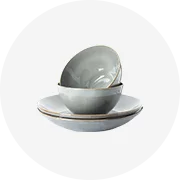

Rectangular 1.5lb 700ml 24oz 7.28 X 5.12 X 1.97" Oblong C18 Disposable Aluminum Food Container Tray With Lids Rec19135i


Customizable Disposable Food Packing Container Rectangular Silver Aluminium Foil Container With Excellent Quality





















Aluminum pots are a staple in many kitchens, offering a versatile and durable solution for cooking a variety of meals. These cookware items are popular for their lightweight properties, heat conductivity, and affordability. They are a prime choice for both home cooks and professional chefs alike due to their ability to evenly distribute heat, reducing the chance of hot spots and burnt food.
The world of aluminum pots and pans is diverse, offering a range of options to meet different cooking needs. Some of the commonly used ones include saucepots, stockpots, and Dutch ovens. A 60 qt pot with basket is ideal for deep frying or boiling large quantities of food, while a 160 qt stock pot is ideal for making soups and broths in bulk. There are also specialized pots designed for specific dishes like pasta pots and pressure cookers.
One of the main features of aluminum cooking pot is its high thermal conductivity, allowing it to heat up and cool down quickly. This provides great control over the cooking process, making it ideal for recipes that require precise temperature adjustments. Aluminum pots are also typically lightweight, making them easy to handle during cooking. However, it's important to note that aluminum pots are not suitable for use on induction cooktops due to the material's non-magnetic nature. Their resistance to rust and corrosion ensures long-term durability and reliability in the kitchen. Furthermore, these pots often come with non-stick coatings, enhancing their usability and making cleanup a breeze.
While aluminum pots offer numerous benefits, some cooks prefer cookware without aluminum due to concerns about the metal leaching into food during cooking. Fortunately, there are alternatives available. Aluminum free stainless steel cookware is a popular choice for those seeking a safer cooking solution. Stainless steel is highly durable and resistant to rust, making it a long-lasting option. However, it does not conduct heat as well as aluminum, so it may require more energy to heat up.
Aluminum pots are a versatile and popular choice for a variety of cooking tasks. Whether you're simmering a sauce, boiling pasta, or cooking a large batch of soup, these pots can handle it all with efficiency and ease. However, it's important to consider the pros and cons of the material and choose a pot that fits your specific cooking needs and preferences. This way, you can ensure you're utilizing your kitchen cookware.